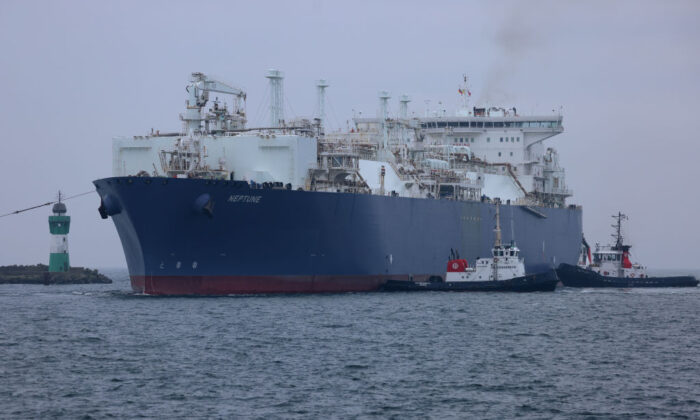European nations without access to the sea are struggling with gas shortages as demand for Russian gas increases.
Europe is witnessing a shift in its energy landscape amid the ongoing Russia–Ukraine conflict.
News Analysis
A consortium of European Union (EU) nations is advocating for stricter regulations on Russian liquid natural gas (LNG) imports, a move that could impact energy supplies in Central and Eastern European countries.
These countries are pushing for more stringent rules as the EU endeavors to reduce its reliance on Russian energy in light of the ongoing tensions with Moscow over the Russia–Ukraine conflict.
The proposed regulations would necessitate more detailed reporting on Russian liquid natural gas in storage and reloaded cargoes.
While the goal is to reduce dependence on Russian energy, these measures could pose challenges for landlocked Central and Eastern European nations that have limited alternatives to Russian gas.
Sanctions
Liquid natural gas, transported via specialized tankers, has grown in importance for Europe’s energy supply. Major ports in France, Belgium, and Spain receive liquid natural gas shipments, which are then converted to gas and distributed across the continent.
With the surge in liquid natural gas imports, a former senior EU official notes that the era of exclusively relying on Russian gas pipelines is coming to an end. However, critics suggest that certain landlocked nations like Hungary are being pushed to transition away from Russian natural gas too hastily.
Increased sanctions on liquid natural gas imports by sea could lead to tighter and costlier fuel supplies for these landlocked countries.
Currently, while the EU has largely banned Russian oil imports, there are no EU-wide sanctions on buying Russian gas. The European Commission is urging member states to reduce imports to prevent funding the Kremlin’s war efforts.
The EU has implemented targeted measures prohibiting the transfer of Russian liquid natural gas between ships in European ports for further delivery, effective in 2025.
In a recent letter to the European Commission, France and the Baltic states called for stronger reporting rules that would demand storage operators to disclose information on the proportion of Russian liquid natural gas in reloaded cargoes and monitor its origin.
Moving Away From Russian Pipeline Gas
The reshaping of Europe’s energy landscape is driven by practical supply needs and geopolitical pressures.



